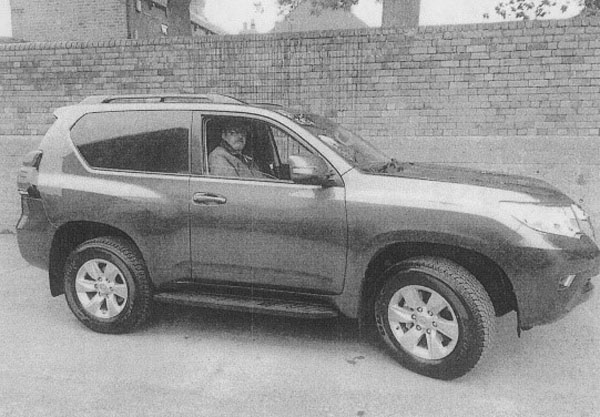A High Court judge has ordered the Guyana Revenue Authority (GRA) to reclassify the Toyota Land Cruiser imported by businessman Mohamed Shaw Jahan as being for commercial use and not a private passenger vehicle.
This is according to Jahan’s attorney, Siand Dhurjon, who said that the now-correct classification would save his client some $14,000,000 the GRA was previously requiring him to pay.
According to a release from Dhurjon, Justice Damone Younge declared that the classification ought to be that of a goods vehicle which falls under tariff heading 8704 and that the one done by the Revenue Authority under tariff heading 8703 was incorrect, void and of no legal effect.
In the circumstances, Dhurjon said the judge issued an order of certiorari quashing the “erroneous” classification and has directed the GRA to, within seven days, reclassify the vehicle as a goods vehicle and to accept the $1,871,457 already paid.
The lawyer said Justice Younge has also ordered the GRA to ensure the release of the vehicle “as soon as practicable” and to also reimburse Jahan whatever storage cost would have already accumulated from last December, until it leaves the John Fernandes terminal.
Dhurjon said the judge came to her determination “after a very thorough and exhaustive survey on the law of tariffs and classification.”
According to his release, she also considered the World Customs Organisation’s explanatory notes, the Customs Act and Guyana’s Common External Tariff introducing the Harmonized Commodity Description and Coding System into law.
He said, too, that the judge went to the extent of viewing the vehicle before arriving at her decision.
Dhurjon said that the GRA condemned itself by its admission that there exists no written policy, guidelines or information available from its office on what features/criteria it would accept or deny to classify a vehicle as a goods vehicle.
He said that different employees would give contradictory information on what they would and would not accept as being a goods or passenger vehicle.
According to the lawyer, GRA had submitted that the presence of two receptacles in which cups could be placed and what they called ‘sports rims’ on the vehicle, indicated that the vehicle was a passenger vehicle.
GRA was represented by attorney Judy Stuart-Adonis and four other GRA attorneys.
Jahan’s argument had been that the former
classification by the Revenue Authority required him to pay almost $14 million in taxes, as opposed to $1.8 million.
Saying he could not afford to pay that large sum, Jahan sought the intervention of the courts, seeking declarations prohibiting the Commissioner General from making any assessment of duties or taxes payable in respect of the vehicle under what he says is “the drastically higher taxation scheme applicable” to a vehicle principally designed for transporting people.
In his application, Jahan said he imported the vehicle, styled by its manufacturer as a “Land Cruiser Commercial Utility Van” from the United Kingdom, which he purchased to assist him in ferrying goods for his business.
According to him, the vehicle has features characteristic of the transport of goods in accordance with the Customs Act.
Listing the features consistent therewith, Jahan had said that the vehicle has only two doors, two seats, only two ventilation windows, a cabin for the driver and passenger and an area behind the driver separated by a metal barrier.
Additionally, he said the rear comprises a distinct flatbed cargo area with a bare tray, devoid of comfort features such as carpeting, ventilation and seatbelts. He said, too, that it has a 2,800cc diesel engine which is slow but capable of fetching and hauling heavy loads.
These features, he argued, are recognized by the Act as being indicative of a vehicle used for the transport of goods.
Jahan argued that it was those very features which were used in determining whether a vehicle is to be classified for goods and in fact are relied upon by the GRA to decide on issues of classification as they occasionally arise.
Jahan had said that he cannot afford to pay what he described as the “burdensome” taxes under the “less favourable taxation regime.”
He had deposed that from December 28th last year the vehicle has been on the John Fernandes wharf, where it has been exposed to the elements, without proper security and incurring daily storage costs.
The businessman had said that the misclassification by the GRA went against its own policy and was without legal foundation and authority.
Dhurjon had said that his client’s claim had national significance because the GRA’s policy on goods-vehicles appeared to be arbitrary and not applied equally for the benefit of all.





